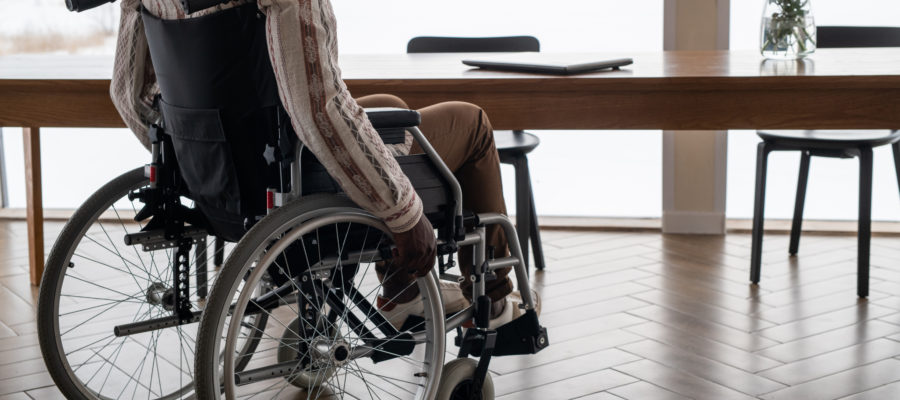After suffering a spinal cord injury, you may feel like your life is over. Paralysis can be a very difficult thing to cope with, but it is not the end. There are many things you can do to make the best of your situation. Keep reading to learn more about how to cope with paralysis.
Practice self-care.

There is no one-size-fits-all answer for how to cope with paralysis, as the best way to manage this condition will vary from person to person. However, practicing self-care is often recommended as a way to manage the challenges of paralysis. Self-care can involve a range of activities, such as eating healthy foods, getting outside, spending time with friends and family, ordering prescriptions from the best online pharmacy, and taking time for relaxation and stress relief. It is important to find what works best for you and to make time for self-care activities each day. If you are struggling to cope with paralysis, it is important to reach out for help. A therapist or counselor can provide support and guidance, and there are also many online support groups available for people living with paralysis.
Renovate your home.
f you or someone you know is living with paralysis, you may be wondering if there is anything you can do to make your home more accessible and comfortable. Fortunately, there are many renovations you can make to improve your quality of life. One of the most important things you can do is make your home as wheelchair-friendly as possible. This may include adding ramps, widening doorways, and installing grab bars during your small bathroom renovation. You may also want to consider getting a wheelchair-accessible van or home elevator. If you are not able to live independently, you may need to consider moving to a home that is more wheelchair-friendly. There are many accessible homes available for sale or rent, and there are also many resources available to help you find the perfect home for your needs.
Get involved in advocacy.

Advocacy is the act of speaking out on behalf of a cause or group. This can include raising awareness, lobbying for change, or providing support to others who share your goals. There are many different ways to get involved in advocacy, depending on your skills and interests. If you want to raise awareness about paralysis, you can start by sharing information about the condition online or in person. You can also participate in fundraising events or visit schools to talk to students about living with paralysis. If you have more political experience, you may want to lobby legislators to pass laws that improve the quality of life for people with disabilities.
Manage your emotions.
When someone suffers a paralyzing injury, it can be difficult to manage emotions. Feelings of sadness, anger, frustration, and isolation are common. It is important to have a support system in place to help you through this time. Here are some tips for managing your emotions:
- Talk about your feelings with family and friends. They want to help but may not know how if you don’t tell them what’s going on.
- Seek professional help if the feelings are too much to handle on your own. A therapist can help you work through your emotions and learn coping mechanisms.
- Exercise regularly. This can help improve mood and reduce stress levels.
- Get plenty of sleep. When you’re tired, it’s harder to manage your emotions effectively.
Life with paralysis after an injury can be difficult, but with the right attitude and support, it can be manageable. It is important to learn how to cope with the changes in your life and to find ways to continue living a fulfilling life. There are many resources available to help you, so don’t be afraid to ask for help when you need it.
